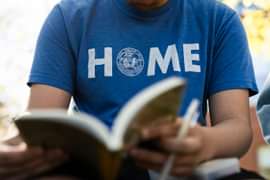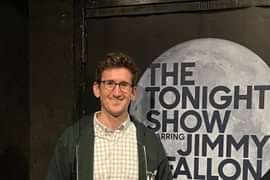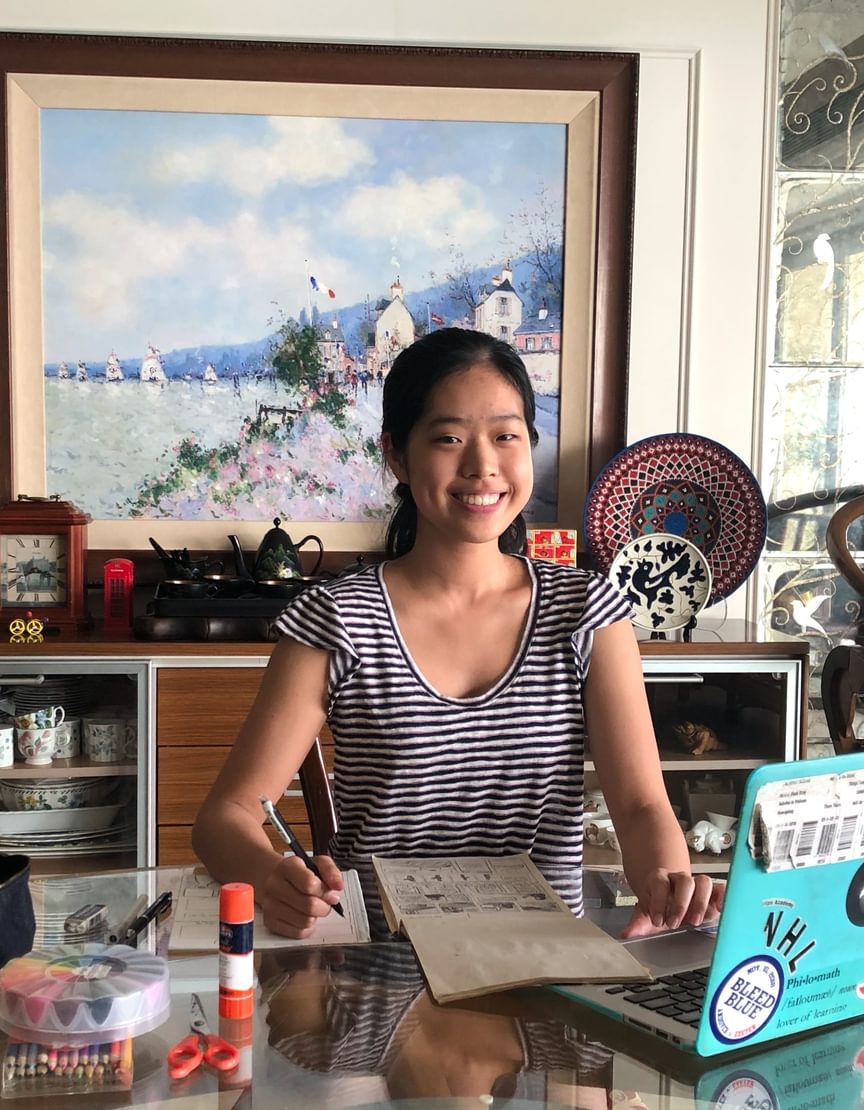
December 09, 2020
A new learning paradigm
The Workshop offers an immersive and interdisciplinary approachWhen 17 Workshop seniors left Andover last March for spring break, English instructor and Tang Institute Senior Fellow Corrie Martin thought she’d see them back sooner rather than later. “We were still hopeful we would have in-person classes, even if delayed somewhat,” she recalls.
It quickly became apparent that wouldn’t be the case. With the coronavirus pandemic forcing everyone home, Workshop faculty scrambled to pivot the distinctive Tang Institute program—in its debut term—to distance learning. The result was what one recent Andover alumna dubbed “an experiment on an experiment”—a redesign of a new and ambitious program into a highly relevant digital endeavor.
A continuation of the Tang Institute’s long-standing commitment to academic innovation, The Workshop is a reimagining of traditional learning models.
Participating seniors must choose it as their only spring term course and fully immerse themselves in the integrated learning opportunity. In its inaugural term, eight Tang fellows signed on to teach and mentor students in this project-based paradigm, which focused on the theme “Community, Class, and Carbon.”
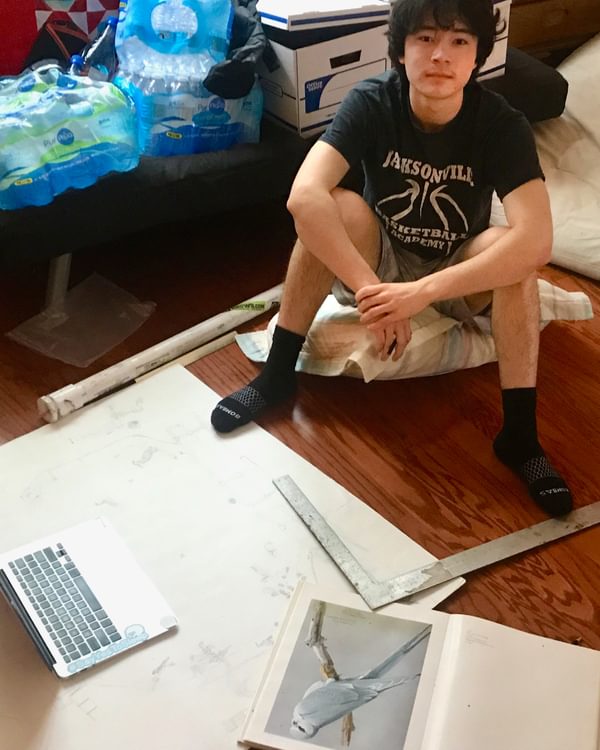 Workshop student Liu Rothschild ’20
Workshop student Liu Rothschild ’20
“Ultimately, we believe that those three ideas—community, class, carbon— spoke to complex, interdisciplinary challenges facing the world today,” says Andrew Housiaux, Currie Family Director of the Tang Institute. “They also gave students multiple entry points. One student researched the sourcing of food in Paresky Commons. Two others wrote about sustainability education at various schools, while still others examined questions of class in relation to migrant workers in Hong Kong. Every project was an authentic exploration of our topic.
“We believe in public-facing demonstrations of learning, opportunities for students to collaborate with peers and faculty in order to revise and improve their work, and the importance of student-initiated research and learning,” continues Housiaux. “These took on new forms in the remote environment, but they also enabled many students to get to know their home communities in ways that would have been impossible if the students had been on campus.”
There were challenges. How do you facilitate relationships when students are spread across the United States, Asia, and South America?
“We had to find ways to connect students in different time zones, in a wide range of circumstances. The Workshop gave us a collaborative mission,” says Martin.
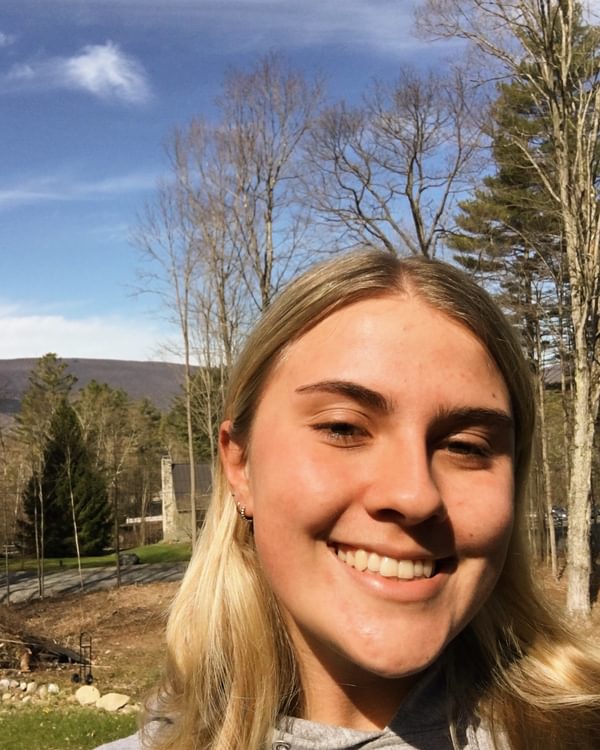 Workshop students Isabel Mikheev ’20 (above) and Sophie Liu ’20 (top of page) worked remotely on the theme of “Community, Class, and Carbon.”
Workshop students Isabel Mikheev ’20 (above) and Sophie Liu ’20 (top of page) worked remotely on the theme of “Community, Class, and Carbon.”
With daily Flipgrid check-ins, journaling, and numerous Zoom meetings, students carried out their research, forming close-knit advisories along the way. They met virtually with Andover alumni—journalists, innovators, and activists. One senior examined the food supply chain in Portland, Maine. Another looked at the impact of the Brown v. Board of Education decision on her family members. Liu Rothschild ’20, interested in climatology, created an art-based project investigating the ecology of a retention pond in his Florida hometown.
“Not only did the course foster independent thought and the ability to conceive and complete a research project, the students were able to create community at a time when many people were not,” says Housiaux. “They were generating research questions, connecting their personal lives to academic inquiry, and learning more about themselves, their families, and their communities in the process.”
Really, The Workshop was a light in the darkness during COVID-19.
”“I got to share with students and teachers even though I wasn’t at Andover,” says Liu, who was touched to see his ninth-grade math teacher in the audience of his final Zoom presentation. “I wanted to leave something for Andover my senior year, which I was able to do. Really, The Workshop was a light in the darkness during COVID-19.”
Faculty will use the 2020 Workshop pilot as a template for the coming spring, but with a new theme: “Democracy and Dissent.” Martin looks forward to igniting scholastic curiosity once again with the timely topic. “We learned through this pilot that what matters in the end is to have a big idea that is intellectually capacious and relevant to students’ lives,” she says.
Housiaux agrees: “One major hope last year was that our students would be able to see themselves in the work that they did, and we feel strongly that we succeeded in this undertaking.”
Discover more at andover.edu/workshop.
Originally printed in The Vista: Views from the Knowledge & Goodness Campaign, fall 2020.




